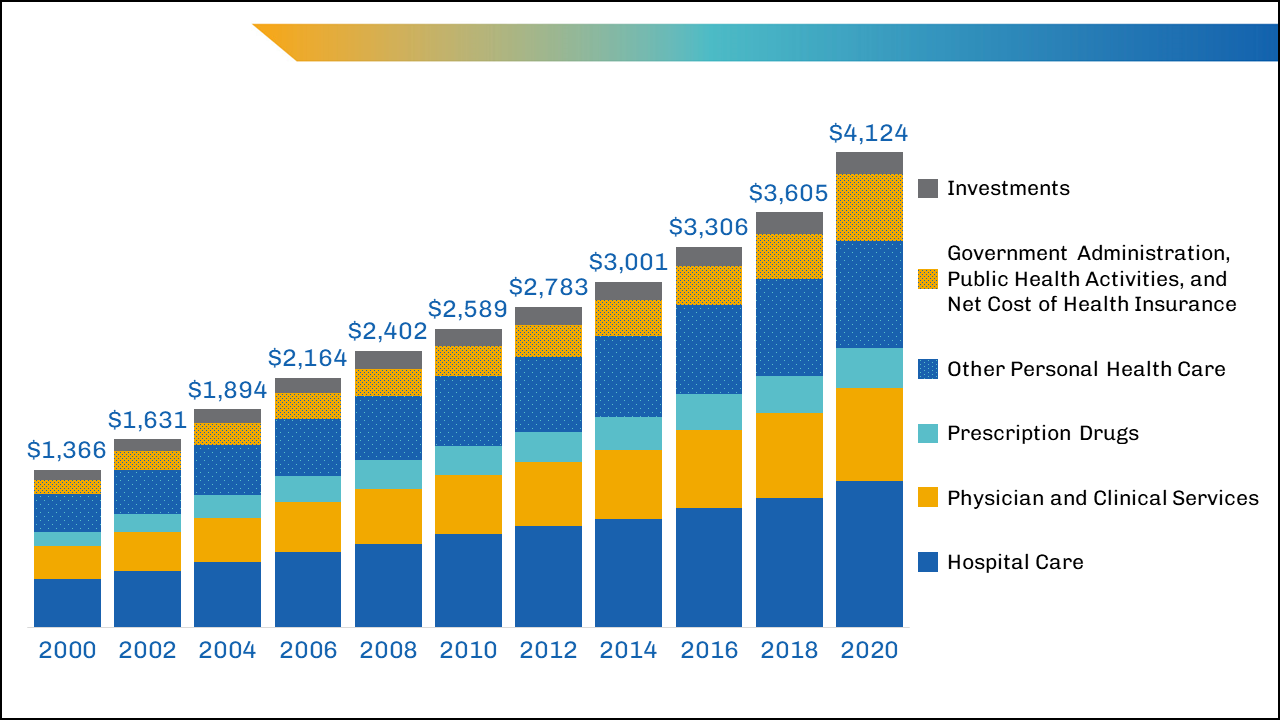Top Healthcare RCM Techniques for Better Financial Performance
Top Healthcare RCM Techniques for Better Financial Performance
Blog Article
Recognizing the Function of Health Care RCM in Enhancing Financial Efficiency and Individual Satisfaction
Browsing the intricacies of Healthcare Revenue Cycle Management (RCM) is essential for achieving ideal economic efficiency while all at once raising patient contentment. RCM's capacity to enhance invoicing, make certain exact coding, and expedite cases processing stands as a foundation of contemporary health care procedures. However, the nuanced interaction between these elements warrants a better examination to completely value their effect on both medical care service providers and individuals. As we discover the transformative possibility of RCM, inquiries regarding its tactical execution and future advancements bid, appealing insights that could redefine industry requirements and patient experiences alike.

Key Components of RCM
In the complicated landscape of healthcare, Earnings Cycle Administration (RCM) is essential in making sure monetary security and functional efficiency. A comprehensive RCM system encompasses numerous important parts, each playing an important duty in the smooth monitoring of a doctor's economic processes. Person enrollment and qualification verification are fundamental actions, guaranteeing that precise person details is captured and insurance policy protection is verified before solutions are made. This minimizes the danger of claim rejections and speeds up the reimbursement process.

Cost capture is an additional vital part, including the exact recording of services given to patients. It ensures that all billable solutions are represented, therefore making best use of income possibility. Simultaneously, medical coding translates patient experiences right into standardized codes, which are vital for payment and regulatory conformity.
Cases submission and administration comply with, entailing the preparation and submission of cases to payers. This process needs careful focus to information to minimize mistakes and prevent delays. Rejection monitoring is an aggressive approach to address and deal with refuted claims, protecting income streams.
Finally, repayment publishing and individual collections finish the cycle, making certain settlements are accurately recorded and exceptional balances are gone after. Together, these components form a robust structure that sustains the financial and operational wellness of medical care companies.
Influence On Financial Efficiency
Effective Income Cycle Management (RCM) considerably influences a healthcare company's economic performance by optimizing capital and lowering earnings leak. RCM includes the extensive billing and collection procedures that make certain health care suppliers effectively manage their monetary transactions from patient enrollment to last repayment. By improving these processes, organizations can minimize denied claims, expedite settlement cycles, and enhance general monetary health and wellness.
Economic performance is enhanced with meticulous administration of invoicing procedures, which includes exact coding and prompt entry of cases. This reduces the possibility of insurance claim denials and rejections, which can considerably impede income circulation if not dealt with immediately. Furthermore, integrating advanced modern technology remedies assists in real-time tracking of cases and financial metrics, giving healthcare administrators with the tools essential to make educated strategic decisions.

Enhancing Individual Contentment
While enhancing monetary performance is an essential goal of Income Cycle Administration (RCM), it likewise plays a critical function in improving client satisfaction. By lowering administrative problems, RCM enables health care companies to concentrate a lot more on client treatment, which directly improves person satisfaction.

RCM also boosts individual contentment via efficient communication. By maintaining a comprehensive database of individual info, RCM facilitates improved communication between patients and healthcare suppliers, making sure individuals feel notified and valued.
Techniques for Reliable RCM
Achieving efficient Earnings Cycle Administration (RCM) calls for medical care companies to carry out a set of tactical techniques that ensure monetary security and functional performance. One essential approach is the adoption of technology-driven remedies, such as incorporated software program platforms that improve payment procedures, lower mistakes, and improve data precision. These systems allow real-time monitoring of monetary metrics, permitting punctual identification and correction of inefficiencies.
An additional technique is the standardization of processes across the revenue cycle. Healthcare RCM. This includes creating regular policies for individual registration, insurance coverage confirmation, and asserts processing. By making sure that all team stick to these standards, organizations can speed up and decrease discrepancies payment collections
Staff training and development also play an essential function in reliable RCM. Well-trained personnel can effectively navigate intricate payment procedures and policies, decreasing rejections and enhancing capital. discover this Routine updates on plan adjustments and ideal practices help preserve a skilled and educated workforce.
Future Trends in RCM
As health care organizations enhance their Earnings Cycle Monitoring (RCM) strategies with innovation and standardized procedures, interest is currently turning towards the future trends forming this critical location. One considerable fad is the combination of fabricated intelligence (AI) and artificial intelligence to automate complicated tasks, such as claims processing and anticipating analytics. These modern technologies are expected to minimize mistakes, increase transaction times, and offer data-driven insights for better decision-making.
Furthermore, the change towards value-based care remains to affect RCM methods - Healthcare RCM. Doctor are expected to significantly concentrate on client outcomes and satisfaction, requiring RCM systems that can fit brand-new reimbursement models. This shift will certainly call for more detailed information collection and evaluation to effectively report and determine on efficiency metrics
Interoperability is an additional arising top priority, as seamless data exchange between disparate systems ends up being important. Boosted interoperability will certainly facilitate even more precise client info sharing, lowering management worries and boosting the person experience.
Verdict
Healthcare Income Cycle Administration (RCM) substantially influences both monetary performance and client fulfillment by enhancing billing procedures, making sure exact coding, and allowing timely claims submission. Reliable RCM decreases profits leakage and increases cash money circulation, decreasing insurance claim rejections and quickening repayments. This effectiveness cultivates trust fund and contentment among clients. RCM systems also promote much better communication and adaptable payment options, developing a patient-centered experience. Future RCM patterns will likely concentrate on more integrating technology to boost these benefits.
Navigating the ins and outs of Medical care Income Cycle Monitoring (RCM) is vital for attaining optimal monetary efficiency while concurrently elevating client contentment. RCM encompasses the detailed payment and collection processes that guarantee medical care service providers effectively handle their anchor financial transactions like this from individual enrollment to final payment. By minimizing management burdens, RCM enables health care carriers to concentrate more on client treatment, which straight boosts person satisfaction.
By maintaining a detailed data source of person information, RCM helps with enhanced interaction in between patients and healthcare suppliers, making certain patients feel informed and valued.Healthcare Revenue Cycle Management (RCM) considerably influences both financial performance and client complete satisfaction by optimizing billing procedures, making certain precise coding, and making it possible for prompt cases entry.
Report this page